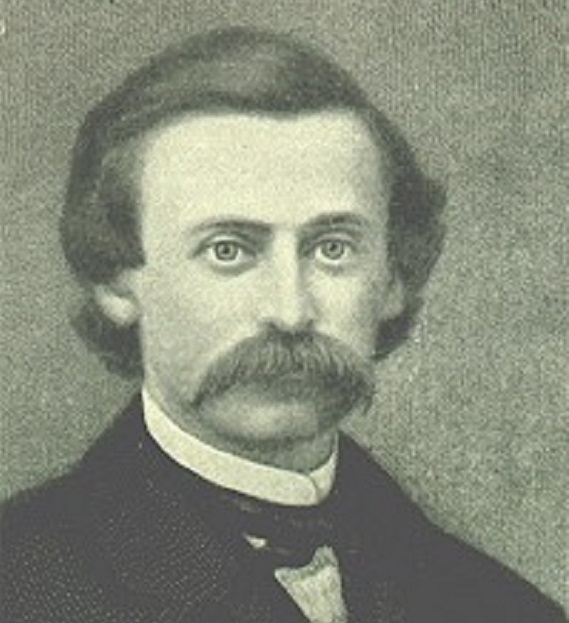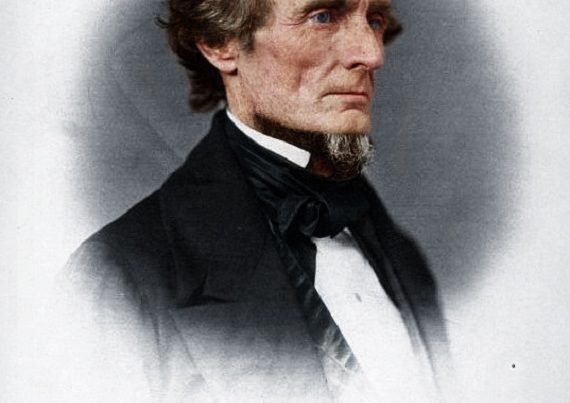
A modern student of American literature would be hard pressed to find anything written on or about Henry Timrod in a current anthology of American poetry. Bob Dylan and Langston Hughes will have text dedicated to their work, but not the Poet Laureate of the Confederacy, a man whose verse sparked men to action and whose sweet sorrow at the conclusion of the War soothed aching hearts and souls. His words would have driven any man to arms, North or South.
After the North won the War, the Southern artist was purged from the academy. Only those who could speak to the Northern mind–meaning a caustic tongue about their native land and people such as Mark Twain–were allowed a place among “American” intellectuals. Such was the fate of William Gilmore Simms and Timrod among others.
Timrod, born on this day (December 8) 1828 in Charleston, SC, was like many Southern writers, an amateur. He spent several years studying law and then took a position as a teacher at a small plantation school in South Carolina. He penned several poems for the Southern Literary Messenger and had a short collection of poetry published in 1860 without much financial success. When the War began in 1861, Timrod joined up but had to leave due to poor health. He attempted to work as a war correspondent but health prevented him from any success in that regard. He finally gave up his martial pursuits and settled into writing poetry about the Southern cause. He had written several fine pieces both before and immediately after War began in 1861 and now had more time to devote to his craft. He married in 1864 and settled in Columbia, SC, only to have to abandon his home and office when Sherman’s men marched into the city and burned it in 1865.
Timrod only lived two years after the War’s conclusion. He died of tuberculosis two months shy of his 40th birthday, but what he left behind from his short but magisterial career should place him among the greatest of American poets. He is often classified as a “regional” poet, a slight and academic classification as second rate. This is unfair. He is certainly as good–better–than any of the New England romanticists and has only been jilted by American academics because of his steadfast devotion to the South and the Confederacy, a minority in 1861. Such determination by other minority peoples would typically receive acclaim. See the aforementioned Hughes, a man whose work is a valuable contribution to American verse, but no better than Timrod’s, only more fashionable among academics.
As for Bob Dylan, his 2006 album “Modern Times” stole several lyrics from Henry Timrod. It seems Timrod is still fashionable and hip. If only the academy would take notice.
The following two poems should be read by every American.
Ethnogenesis
Written during the meeting of the first Southern Congress, at Montgomery. February, 1861.
I.
Hath not the morning dawned with added light?
And shall not evening call another star
Out of the infinite regions of the night,
To mark this day in Heaven? At last, we are
A nation among nations; and the world
Shall soon behold in many a distant port
Another flag unfurled!
Now, come what may, whose favor need we court?
And, under God, whose thunder need we fear?
Thank Him who placed us here
Beneath so kind a sky – the very sun
Takes part with us; and on our errands run
All breezes of the ocean; dew and rain
Do noiseless battle for us; and the Year,
And all the gentle daughters in her train,
March in our ranks, and in our service wield
Long spears of golden grain!
A yellow blossom as her fairy shield,
June flings her azure banner to the wind,
While in the order of their birth
Her sisters pass, and many an ample field
Grows white beneath their steps, till now, behold,
Its endless sheets unfold
THE SNOW OF SOUTHERN SUMMERS! Let the earth
Rejoice! beneath those fleeces soft and warm
Our happy land shall sleep
In a repose as deep
As if we lay intrenched behind
Whole leagues of Russian ice and Arctic storm!
II.
And what if, mad with wrongs themselves have wrought,
In their own treachery caught,
By their own fears made bold,
And leagued with him of old,
Who long since in the limits of the North
Set up his evil throne, and warred with God –
What if, both mad and blinded in their rage,
Our foes should fling us down their mortal gage,
And with a hostile step profane our sod!
We shall not shrink, my brothers, but go forth
To meet them, marshalled by the Lord of Hosts,
And overshadowed by the mighty ghosts
Of Moultrie and of Eutaw – who shall foil
Auxiliars such as these? Nor these alone,
But every stock and stone
Shall help us; but the very soil,
And all the generous wealth it gives to toil,
And all for which we love our noble land,
Shall fight beside, and through us; sea and strand,
The heart of woman, and her hand,
Tree, fruit, and flower, and every influence,
Gentle, or grave, or grand;
The winds in our defence
Shall seem to blow; to us the hills shall lend
Their firmness and their calm;
And in our stiffened sinews we shall blend
The strength of pine and palm!
III.
Nor would we shun the battle-ground,
Though weak as we are strong;
Call up the clashing elements around,
And test the right and wrong!
On one side, creeds that dare to teach
What Christ and Paul refrained to preach;
Codes built upon a broken pledge,
And Charity that whets a poniard’s edge;
Fair schemes that leave the neighboring poor
To starve and shiver at the schemer’s door,
While in the world’s most liberal ranks enrolled,
He turns some vast philanthropy to gold;
Religion, taking every mortal form
But that a pure and Christian faith makes warm,
Where not to vile fanatic passion urged,
Or not in vague philosophies submerged,
Repulsive with all Pharisaic leaven,
And making laws to stay the laws of Heaven!
And on the other, scorn of sordid gain,
Unblemished honor, truth without a stain,
Faith, justice, reverence, charitable wealth,
And, for the poor and humble, laws which give,
Not the mean right to buy the right to live,
But life, and home, and health!
To doubt the end were want of trust in God,
Who, if he has decreed
That we must pass a redder sea
Than that which rang to Miriam’s holy glee,
Will surely raise at need
A Moses with his rod!
IV.
But let our fears – if fears we have – be still,
And turn us to the future! Could we climb
Some mighty Alp, and view the coming time,
The rapturous sight would fill
Our eyes with happy tears!
Not only for the glories which the years
Shall bring us; not for lands from sea to sea,
And wealth, and power; and peace, though these shall be;
But for the distant peoples we shall bless,
And the hushed murmurs of a world’s distress:
For, to give labor to the poor,
The whole sad planet o’er,
And save from want and crime the humblest door,
Is one among the many ends for which
God makes us great and rich!
The hour perchance is not yet wholly ripe
When all shall own it, but the type
Whereby we shall be known in every land
Is that vast gulf which lips our Southern strand,
And through the cold, untempered ocean pours
Its genial streams, that far off Arctic shores
May sometimes catch upon the softened breeze
Strange tropic warmth and hints of summer seas.
ODE.
SUNG ON THE OCCASION OF DECORATING THE GRAVES
OF THE CONFEDERATE DEAD, AT MAGNOLIA CEMETERY,
CHARLESTON, S. C., 1867.
I.
Sleep sweetly in your humble graves,
Sleep, martyrs of a fallen cause;
Though yet no marble column craves
The pilgrim here to pause.
II.
In seeds of laurel in the earth
The blossom of your fame is blown,
And somewhere, waiting for its birth,
The shaft is in the stone!
III.
Meanwhile, behalf the tardy years
Which keep in trust your storied tombs,
Behold! your sisters bring their tears,
And these memorial blooms.
IV.
Small tributes! but your shades will smile
More proudly on these wreaths to-day,
Than when some cannon-moulded pile
Shall overlook this bay.
V.
Stoop, angels, hither from the skies!
There is no holier spot of ground
Than where defeated valor lies,
By mourning beauty crowned!
The best biography on Timrod is Walter Brian Cisco, Henry Timrod: A Biography.
See also The Poems of Henry Timrod.





